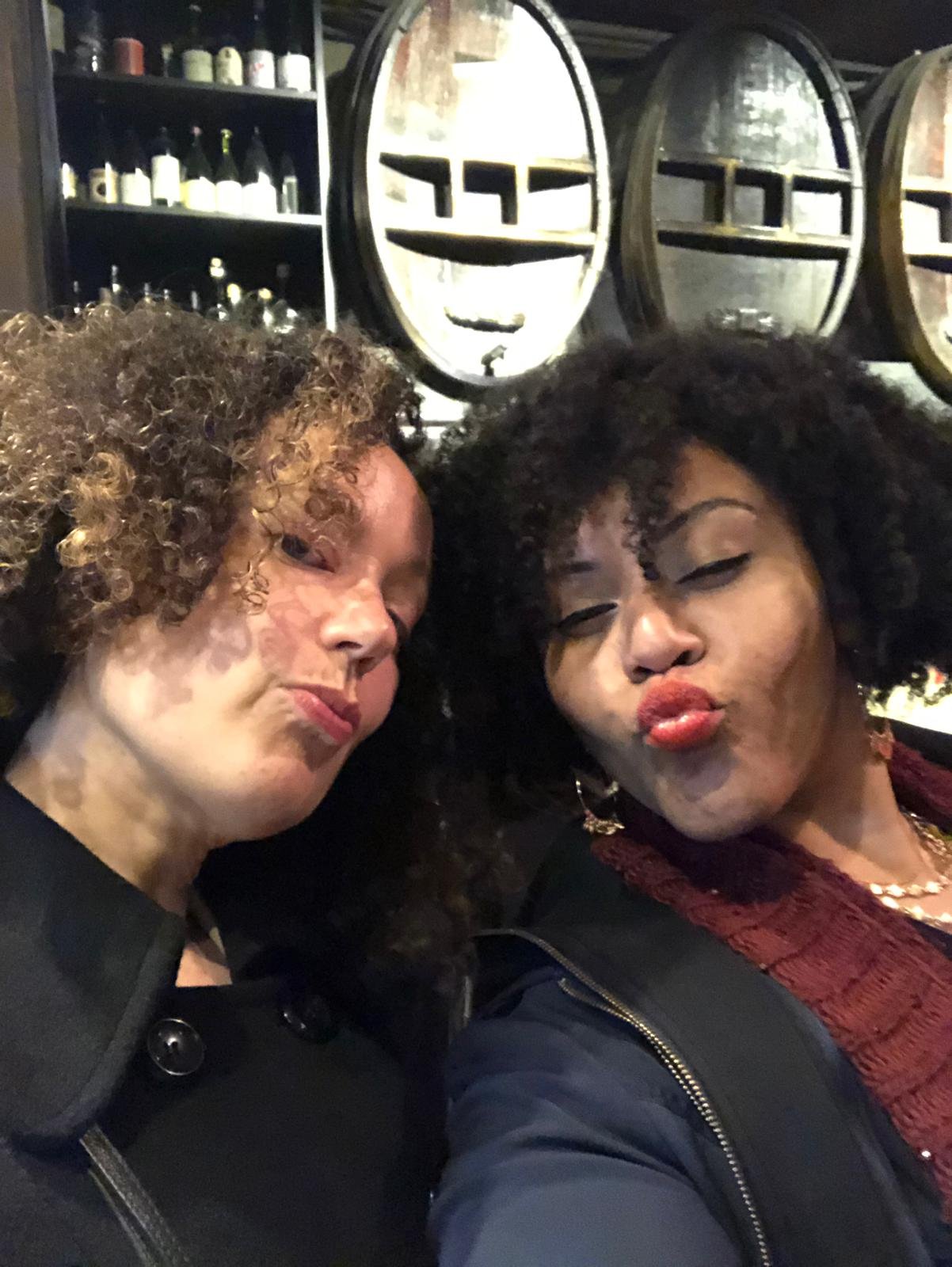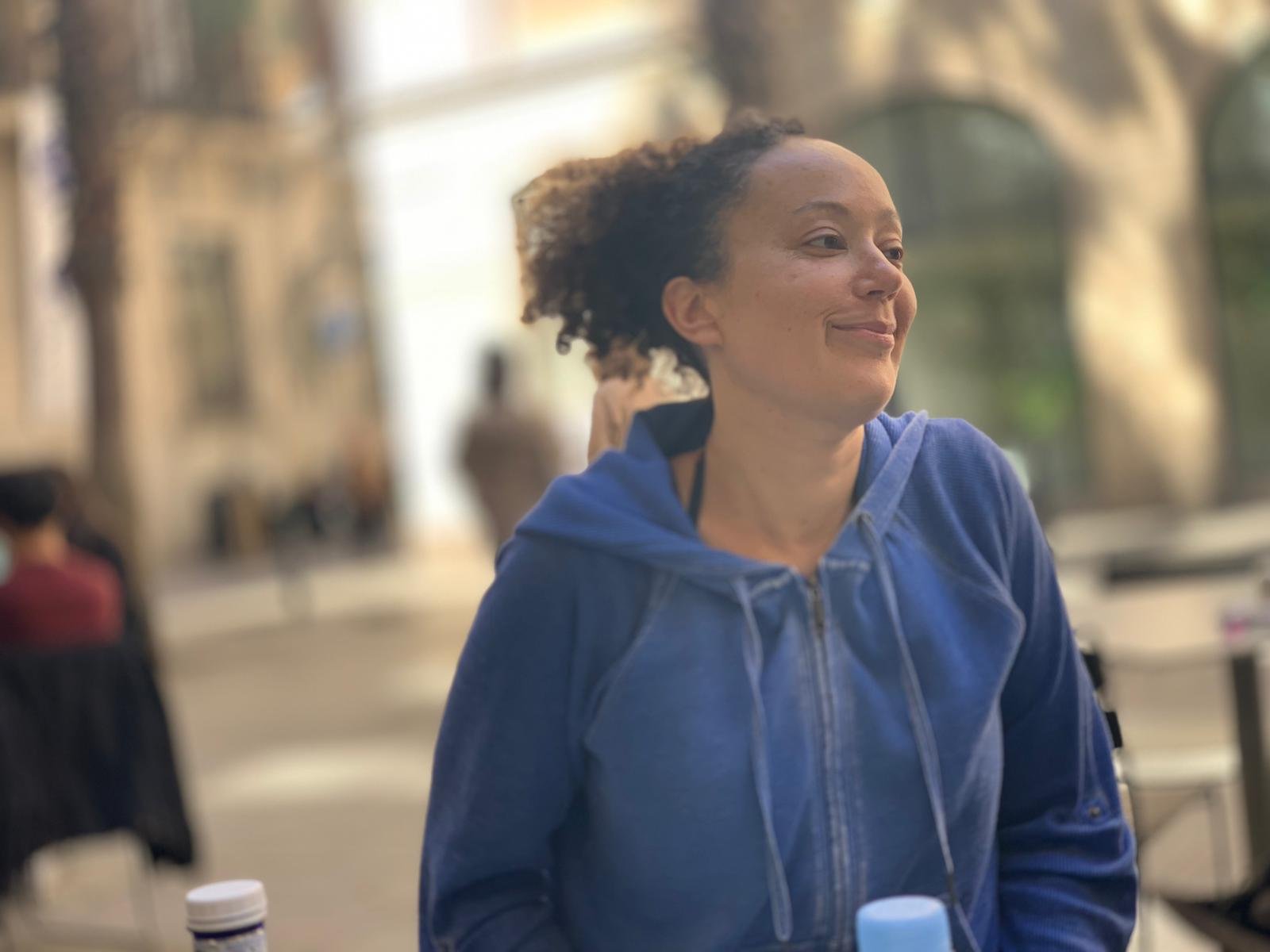INSIDE THE OUT
By Roxy Menzies
Nine times out of ten when I meet someone new and if my Jamaican heritage comes up - I wait for it - the puzzled look, a little tilt of the head and I can literally see their brains like a clock, winding up and starting to tick. Next comes, “but you’re so white?...” and then they’re even more puzzled when I tell them both of my parents are from that Island. The stereotype of a dark skinned brother with dreads smoking a spliff, whose whole vocabulary consists of the word ‘irie (which is actually one of my favorite words!) or “yah mahnnn” is highly insulting to the melting pot that is Jamaica (as well as many other Islands of the Caribbean).
A few years ago, while in NYC, I was wearing my Jamaican flag dress and a woman kept eyeing me up and down in the subway. Again-- I wait for it, I’ve been on this planet, in this skin and in this body long enough to usually see what’s coming. I waited for her next round of eyeing me up and down to get back to my face so we could make eye contact. Most of the time I ignore stuff but every now and then, I’m in a mood and ready to be confrontational. She condescendingly asked me “have you been to Jamaica?” Very politely, I responded “yes, my parents are from there.” Her whole face lights up and she squeals “mine too!!”
It’s funny how we as humans can be skeptical or even judgemental of someone until we find a commonality.
Anyone in the Black community knows about the duality of the mixed individual or colourism within our community. The internal conflict of colourism that divides our community is yet another branch of painful history still seeped in society. For me, I've never felt that I truly belonged anywhere, at least until highschool and University. There, I met other second generation Canadians of West Indian descent and found a kinship. In general, I tend to gravitate and feel more connected to my roots of the African diaspora, at least there, I don’t have to constantly educate those around me. Like the woman on the NYC subway, if there is any question of what I'm doing there, I'm usually accepted once my background is confirmed. But 80% of the time a darker skinned person will look at me and go “you mixed?” just because I look like someone in their family.
Growing up, all I ever heard was how beautiful and perfect my little brother’s complexion was (colonialism is still seeped in our blood; he was a nice light brown -- not too dark and not pasty white). I had wished my complexion was darker so it would be more obvious to the world “what I am” because people would always ask or guess. Travelling and teaching Pilates around the world was interesting; when I was the new girl in town, they would ask about my background, “why is her hair like an African?” My features made me exotic and unique but my white skin was less threatening. I know that because on many occasions I would have to discuss and educate them about their blatantly inappropriate remarks or micro-aggressions. I’d tell them that Mariah Carey and Jennifer Beals are like me, mixed, and now of course there’s Meghan Markle. Hmm… I like the sound of that.. I may just start referring to myself as “The Royal Highness of Pilates.”
As of late, with the new world awakening to white privilege, I have also pondered: Where do I stand? What can I bring to the table?
It was members of the BGPI community that urged me to use my voice and share my words and I was always thanked them behind the scenes but never publicly and I assume it’s because of my white skin. I mean people think Beyonce and Misty Copeland are “so white” so where would I fit in? And the truth is, regardless of my mixed race my skin affords me privileges that my darker brothers and sisters don’t have (except for auditions for hip hop videos back in the day where they would ask the white people to leave and I would go in last but the director had already left -- out of principle as a mixed individual I could stay but I was still too white for the part). If I walk into an average store in the U.S and then a dark skinned person walks in after me, we will have different experiences.
Not since my University years when I belonged to Toronto’s first all female Hip Hop dance group had I been a part of a sisterhood. I was elated to learn about Black Girl Pilates. I’ll never forget ending the first day of the 2018 New York meet-up with another member who was also very light skinned but features were more prominent than mine. I spoke about being able to pass for white and not always feeling accepted in the Black community (or the white community) she said she had received the same hate sometimes but her response to that was so confident, “I don’t give a fuck.” That moment confirmed that I was home.
*credit for the title goes to my cousin the writer Darren Andrade*

